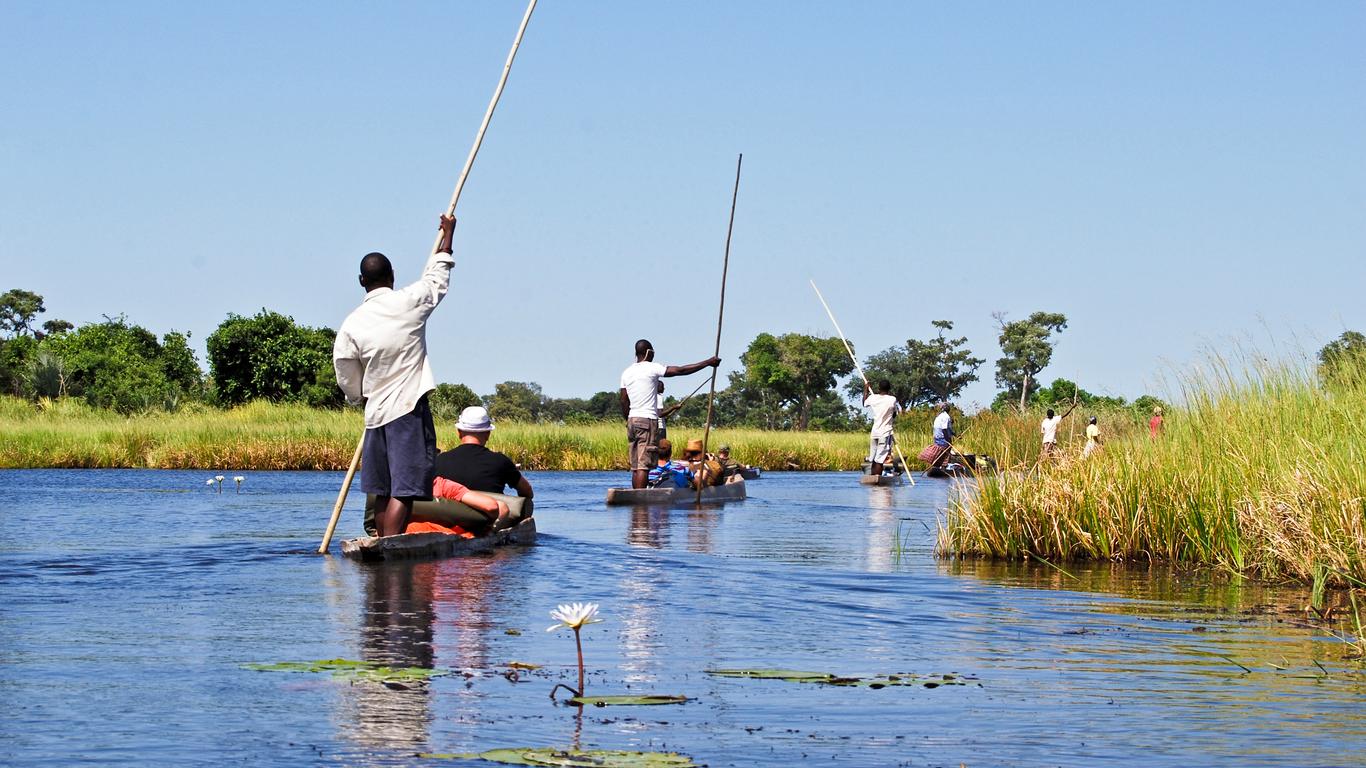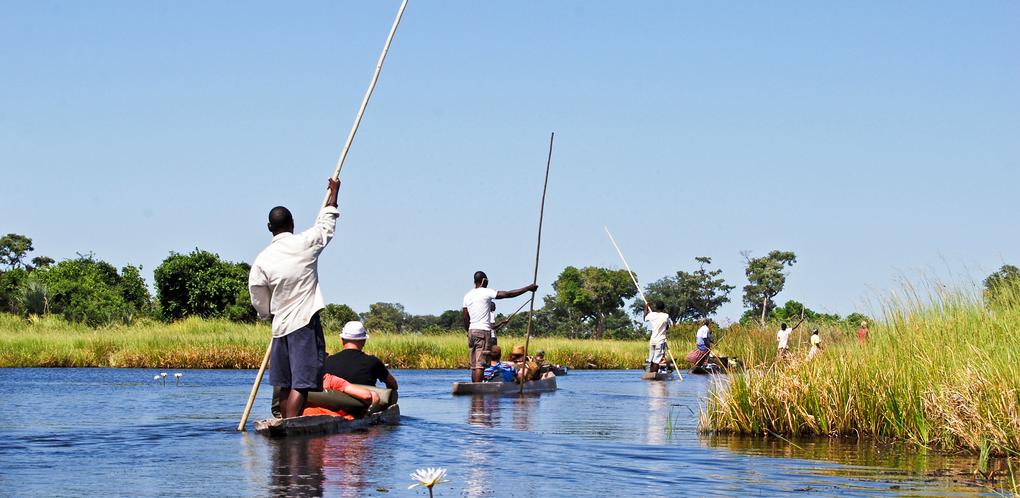
Botswana travel guide
Botswana Tourism | Botswana Guide
You're Going to Love Botswana
A quiet, unassuming country, Botswana is a jewel in the center of Africa. With its abundance of wildlife, smiling friendly locals and wide open spaces, this country is a place filled with promise and adventure.

What to do in Botswana
1. Go on a Safari
Go on a game drive and see if you can spot a herd of elephants, one of the many species of antelope or one of the big cats (lion and leopard) lurking in the bush of the Chobe National Park.
2. Stay in Tswapong Hills
A perfect contrast to the dry plains of Botswana, the Tswapong Hills have a microclimate of their own with lush greenery, lagoons and waterfalls. While there, try climbing Moremi Gorge.
3. Venture into the Okavango Delta
Whether traveling in a canoe, by foot or in a 4x4 game-viewing vehicle, the Okavango Delta provides a combination of bird-watching and animal-spotting, serenity on the waterways and excitement at seeing one or more of the Big Five (elephant, rhinoceros, buffalo, lion and leopard).
4. See some Rock Art
Arrange a tour to the Tsodilo Hills in the Kalahari Desert to look at the rock art that provides an account of the natural history of the region.
5. Explore Deception Valley
Running through the Central Kalahari Game Reserve is Deception Valley – one of the fossil valleys located in Central Kalahari. Take a game drive along the valley and spot wildlife in its natural habitat.
When to visit Botswana
The dry season, which falls between May and October, is the best time to visit Botswana as temperatures are around 77°F (although it can be colder in the south of the country). The best time for game viewing is between June and September as the vegetation is less dense due to the lack of rain.
How to Get to Botswana
Entry requirements
Nationals from the EU, Canada, UK, USA and Australia, as well as those from some Asian, African and South American countries will not need a visa for visits of up to 90 days, but will need a valid return or onward ticket.
Plane
The main international airports in Botswana are Sir Seretse Khama International Airport and Maun International Airport. These airports receive regional flights operated by Airlink , South African Airways and Air Botswana, which is the national carrier.
Bus
There are regular bus services from South Africa to Botswana with routes operated by Intercape coaches. Buses also run from Zambia to Gaborone via Francistown on the Zambia-Botswana Express coach line.
Popular airlines serving Botswana
Where to stay in Botswana
In the towns and cities, it is possible to stay in midrange hotels - the southern African hotel chain Cresta is present in most cities. Within the game reserves, there is the option of camping grounds, safari camps (which can be budget or midrange) or private luxury lodges.
Where to stay in popular areas of Botswana
How to Get Around Botswana
Public Transportation
Within the towns of Botswana, there are minibuses, or kombis, that are primarily used by local commuters needing to move between the populated areas.
Bus
While there is a network of buses and kombis linking the main villages and cities in Botswana, the timetable will depend on the quality of the roads in the areas. There are no long distance options, so connections may need to be made en route.
Car
It is possible to rent cars at the main airports and for long distances, it is advisable to rent 4x4s that are equipped to deal with all road types. Avis, located at the airports in Gaborone, Maun and Francistown, is one of the international companies represented in Botswana. Local companies include Travel Adventures Botswana in Maun and Kasembe.
Plane
Domestic flights between Gaborone, Francistown and Maun are operated by Air Botswana.
The Cost of Living in Botswana
It is relatively cheap to live in Botswana as a visitor. Groceries could cost around 78 BWP (7.10 USD) for a gallon of milk and a dozen eggs. Eating at restaurants is frequently cheaper than eating in, with prices of less than about 100 BWP (9.10 USD) per person to eat in a slightly cheaper restaurant. Most major credit cards are accepted in the cities and at hotels and upmarket restaurants. ATMs can be found in most of the larger towns and cities and it is always a good idea to have some cash on hand.